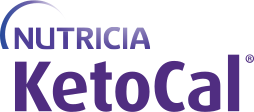A dietary seizure management option to consider when anti-seizure medications fail

Many adults and some children with drug-resistant epilepsy, also known as refractory or intractable epilepsy, are started on the modified Atkins®* diet (MAD) or may benefit from switching to MAD.
The modified Atkins diet for epilepsy was invented in the early 2000s by Dr. Eric Kossoff and is based off the original 1970s Atkins diet for obesity by Dr. Robert C. Atkins.
The modified Atkins diet for epilepsy is a well-tolerated diet option for children. MAD successfully helps manage seizures in about half of all adults and children who try it.1


How does MAD compare to the classic medical ketogenic diet?
Like the classic ketogenic diet, MAD is:
- Another management option to consider when anti-epileptic drugs (AEDs) have failed to control seizures.
- Based on a high-fat, adequate-protein, and low-carbohydrate diet.
- A diet requiring the strict counting of carbohydrates and the consumption of a lot of fat to help promote ketosis. Ketosis is what helps control seizures.
- An option that should be followed under strict medical supervision.
MAD is different from the classic ketogenic diet because it is considered less restrictive and easier to follow. It does not require the weighing of foods, fasting, or hospital admission.
Tips for getting started
Ketogenic dietitian, Stacey provides 5 simple tips to help you start on the modified Atkins diet for management of drug-resistant epilepsy.
Modified Atkins Diet (MAD) Frequently Asked Questions
Adults and children with drug-resistant epilepsy can potentially improve their seizure control on the modified Atkins diet. But, the modified Atkins diet may be recommended more in teenagers and adults, who tend to have a more difficult time following the classic medical ketogenic diet.
The modified Atkins diet may be recommended for the following types of people:
- Adults and children with drug-resistant epilepsy have not seen an improvement in seizure control while taking anti-seizure medications.
- Adults, teenagers, and children who cannot adhere to the restrictive nature of the classic medical ketogenic diet.
- Adults who tried a medical ketogenic diet as children saw a reduction in seizures.
- Adults and children with epilepsy syndromes (such as Glucose transporter type 1 deficiency syndrome, Lennox-Gastaut syndrome, juvenile myoclonic epilepsy, Rett syndrome, and tuberous sclerosis complex).
- Adults and children with epilepsy who do not have access to an epilepsy center that offers the classic medical ketogenic diet.
- Adults with epilepsy have other comorbid medical and/or neurologic conditions (such as obesity, type 2 diabetes, headaches, and many others).
- Children with poor growth on the classic medical ketogenic diet.
- Children and adults with a history of high cholesterol or high cholesterol.

Corinne’s Story: Epilepsy & the Modified Atkins Diet
It was only when I started the modified Atkins diet in addition to the medications that I started to feel like myself again and was no longer in constant fear of possibly having another seizure.
References: 1. Schachter S, Sirven J. Modified Atkins Diet: Epilepsy Foundation; 2020 [updated 2020; cited 2021 June 1]. Available from: https://www.epilepsy.com/learn/treating-seizures-and-epilepsy/dietary-therapies/modified-atkins-diet. 2. Kossoff EH, Dorward JL, Turner Z, Pyzik PL. Prospective study of the modified Atkins diet in combination with a ketogenic liquid supplement during the initial month. Journal of Child Neurology. 2011 Feb;26(2):147-51. 3. McDonald TJ, Henry-Barron BJ, Felton EA, Gutierrez EG, Barnett J, Fisher R, Lwin M, Jan A, Vizthum D, Kossoff EH, Cervenka MC. Improving compliance in adults with epilepsy on a modified Atkins diet: a randomized trial. Seizure. 2018 Aug 1;60:132-8.
The content in this section is for informational or educational purposes only and does not substitute professional medical advice or consultations with your healthcare professional.
